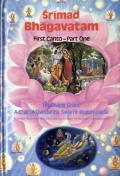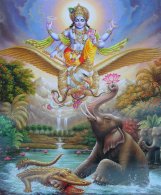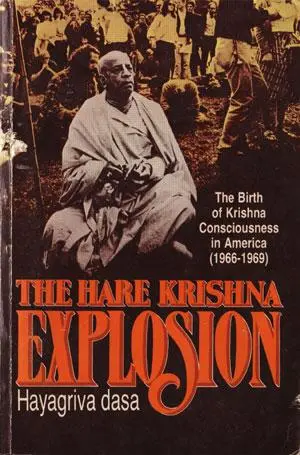The Importance of Hearing
Excerpted from: Kṛṣṇa, the Supreme Personality of Godhead
By His Divine Grace A. C. Bhaktivedanta Swami Prabhupāda
Chapter Seven The Salvation of Tṛṇāvarta
The Supreme Personality of Godhead, Kṛṣṇa, is always full of six opulences–namely complete wealth, complete strength, complete fame, complete knowledge, complete beauty and complete renunciation. The Lord appears in different complete, eternal forms of incarnation. The conditioned soul has immense opportunity to hear about the transcendental activities of the Lord in these different incarnations. In the Bhagavad-gītā it is said, janma karma ca me divyam. The pastimes and activities of the Lord are not material; they are beyond the material conception. But the conditioned soul can benefit by hearing such uncommon activities. Hearing is an opportunity to associate with the Lord; to hear His activities is to evolve to the transcendental nature–simply by hearing. The conditioned soul has a natural aptitude to hear something about other conditioned souls in the form of fiction, drama and novel. That inclination to hear something about others may be utilized in hearing the pastimes of the Lord. Then one can immediately evolve to his transcendental nature. Kṛṣṇa’s pastimes are not only beautiful; they are also very pleasing to the mind.

















